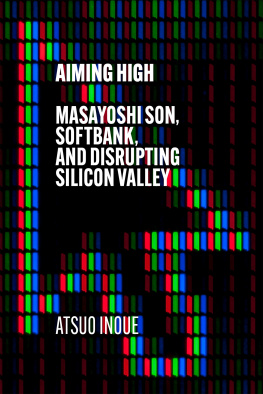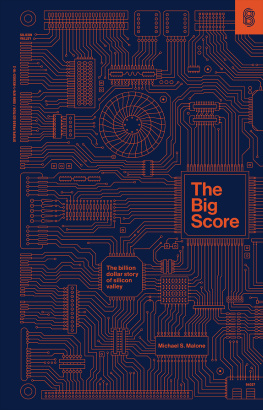First published in 2018
by Eyewear Publishing Ltd
Suite 333, 19-21 Crawford Street
London, W1H 1PJ
United Kingdom
Cover and typographic design by Edwin Smet
Author image by Kristi Chan
Printed in England by TJ International Ltd, Padstow, Cornwall
All rights reserved
2018 Keith A. Spencer
The moral right of Keith A. Spencer to be identified as
author of this work has been asserted in accordance with section 77
of the Copyright, Designs and Patents Act 1988
All rights reserved
Without limiting the rights under copyright reserved above, no part of this publication may be reproduced, stored in or introduced into a retrieval system, or transmitted, in any form or by any means (electronic, mechanical, photocopying, recording or otherwise), without the prior written permission of both the copyright owner and the above publisher of this book.
The editor has generally followed American spelling and punctuation at the authors request.
Set in Bembo 12 / 16 pt
ISBN 978-1-911335-33-7
eBook ISBN 978-1-912924-50-9
WWW.EYEWEARPUBLISHING.COM

Keith A. Spencer
is a San Francisco-based writer, artist and
commentator. He is currently an editor
at Salon.com, where he manages science
and tech coverage, and previously served
as editor-in-chief of the Bay Area culture
magazine The Bold Italic.
CONTENTS
INTRODUCTION:
WHAT IS SILICON VALLEY?
The modern fable of the self-made tech entrepreneur follows a common formula: A scrappy whiz-kid in Silicon Valley conceives of a startup that rents out other peoples goods, services, and information to strangers. The entrepreneur designs a platform to facilitate that rental. Aside from the web platform, the company owns no products and manufactures nothing. Within a decade the company is valued in the billions of dollars, and the founders are hailed as geniuses. Everyone lives happily, and wealthily, ever after.
This is the story of many a sharing economy company, from ride-sharing app Uber to vacation rental-site Airbnb, both of which count among the unicorn startups companies with valuations over $1 billion.
Yet there is an alternative version of this startup story, with its own familiar arc, that goes vaguely like this: while the startup is growing, the founders ignore the social ills their platform will inflict on the world. People both workers and consumers find themselves exploited and displaced because of their product or services. The company avoids taxes and dodges regulations to amass its hefty profits, sometimes knowingly breaking the law. Along the way, someone in upper management makes a public blunder, saying something sexist or racist in a public forum that exposes the rotten internal culture of the company. The companys PR team runs diversions. Civic officials around the world start to notice how the company, despite positioning itself as a friendly example of the gig economy, evades regulations and taxation. Finally, the protests start. Propositions appear on ballots around the globe, an attempt to help cure some of the social ills caused by said company.
This dystopian version of the common fable continuously repeats itself in the San Francisco Bay Area, home to Silicon Valley. Yet most of us are more familiar with the fairytale story of the self-made Silicon Valley millionaire than the alternative history of how their platform led to other peoples impoverishment. That may be because Silicon Valley has been adept at exporting a vision of itself as clean, progressive, futuristic and utopian. Hence, when we think of Silicon Valley, we are less likely to think of immiseration and more likely to think of amazing gadgets and sunny promises from industry leaders about a brighter future.
Perhaps because of its reputation as a wonderland of wealth and futurism, the name Silicon Valley has become synonymous with growth, invention, and prosperity. Cities across the globe have issued tax breaks for technology companies and created special innovation zones in hopes of attracting their own versions of Silicon Valley, often giving them cute monikers that suggest parallels with the original: this includes Silicon Beach (Los Angeles), Silicon Alley (Manhattan), Silicon Gulf (Davao City, Philippines), and Silicon Fen (Cambridge).
Those who hail from the San Francisco Bay Area know that these jovial feelings about Silicon Valley do not encircle its home region. As tech wealth has poured into the Bay Area, its economic benefits have not spread equally; indeed, recently the Bay Area has seen its middle class stagnate as income inequality skyrockets. In January 2016, the World Bank issued a warning that Silicon Valleys tech companies were exacerbating income inequality, rather than improving it. Not surprisingly, the better-educated, well-connected, and more capable have received most of the benefits circumscribing the gains from the digital revolution, their report stated. In short, the tech industry creates a lot of wealth, but that wealth is very unevenly distributed.
Even former President Barack Obama admitted that rural Americans anger over income inequality exacerbated by the tech industry may have led to Donald Trumps victory in the 2016 presidential race. Indeed, the 2010s have been characterized by both the ubiquity of social media and the rise of far-right movements and parties around the world, phenomena that are not separable. Social media platforms like Twitter, Facebook and Tumblr have created distinct reality bubbles, each with their own ideological and political underpinnings, which have helped Balkanize humanity. It is not too much of a stretch to say that Brexit, Trump, and the rise of far-right parties in countries like Austria, Germany, and France owe their existence to the enabling power of Facebook and Twitter.
Meanwhile, Silicon Valley has become a microcosm of the social discord unleashed by the tech industry around the world. In the Bay Area, the gap between rich tech workers and the working-class has wreaked havoc on the regions social fabric. Low-income families in the San Francisco Bay Area region are worse off in 2016 than they were in 2009, and San Franciscos middle class shrank 10 percent in the 25 years from 1989 to 2014. In San Mateo County, home of Facebook, the top 1% of earners take home 46 times as much as the average of the bottom 99%.
Silicon Valleys techie culture, which proliferated as tech jobs spread around the region, has become a source of anger, pride, and satire. The hubris of tech culture is often mocked in film and television as in Mike Judges Silicon Valley, or the Mark Zuckerberg biopic, The Social Network, both of which portray the tech elite as hopelessly out of touch with everyday people. These representations mirror the social reality of the Bay Area; again, despite vast tech wealth and constant promises from the tech elite of a better life through technology, homelessness continues to be an intractable social problem. Moreover, much of the homeless population of the Bay Area constitutes people who once had homes but were pushed out by the pressures associated with gentrification. A 2015 homeless survey of San Francisco found a record 71% of homeless people had been living in a stable housing situation prior to becoming homeless.







